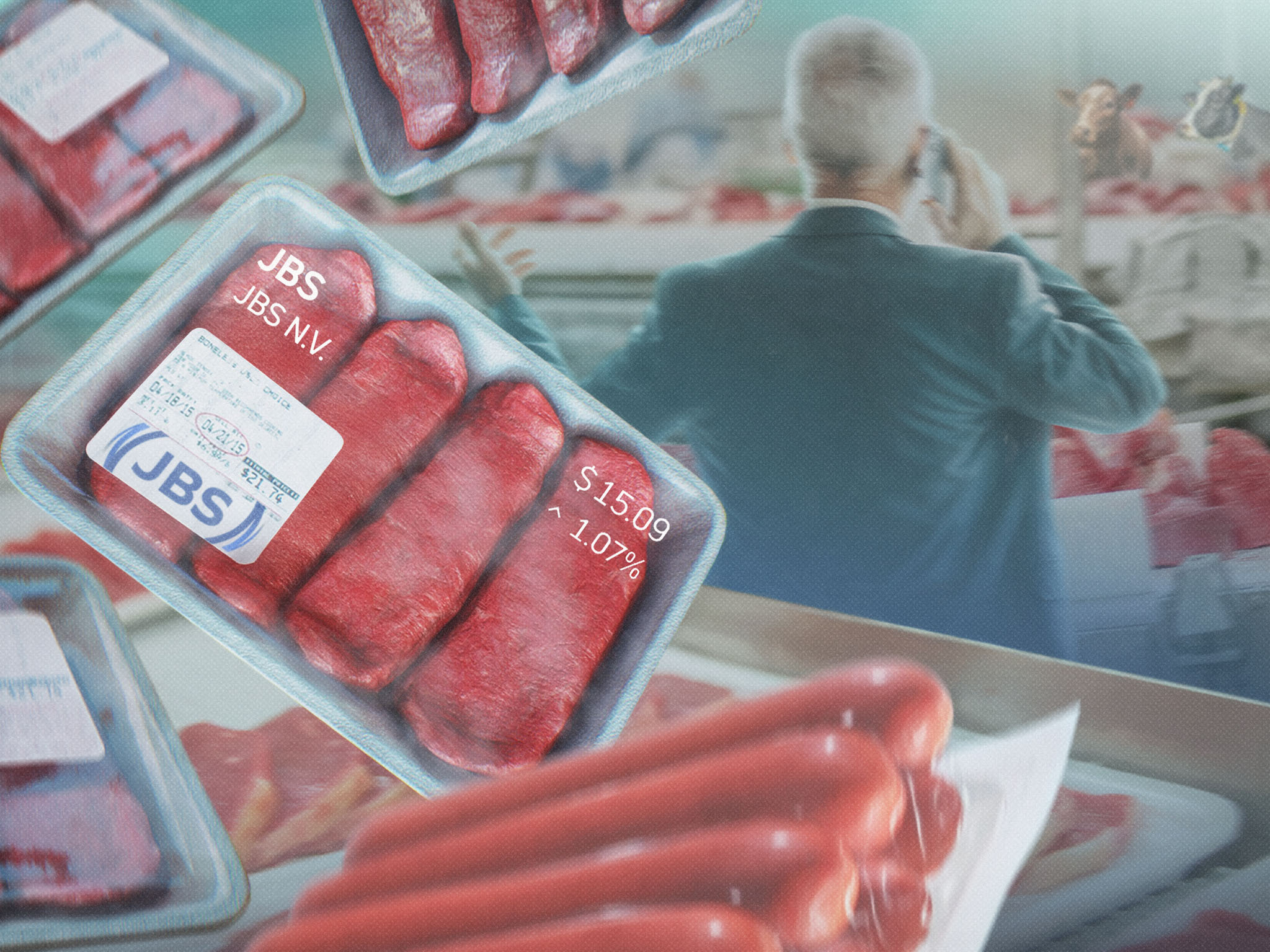JBS (NYSE: JBS), the world’s largest food company by revenue ($77 billion last year), faces several cross currents. So you can view its glass as either half full or half empty.
One big plus is JBS’ size. That gives it diversification in products and in geographical markets. It’s the biggest global producer of beef and poultry and second biggest of pork. The company sells its products in 180 countries. It fully owns the Swift meat business and has an 82% stake in poultry producer Pilgrim’s Pride, one of its most valuable holdings.
On the downside, one problem for JBS is the shortage of cows in the U.S., which is boosting the price JBS and others must pay for them. The US cattle herd is the smallest in more than 60 years, due to drought and rising input prices, such as feed and fuel. Mexican flesh-eating flies are a problem too. All this is causing losses for JBS’ U.S. beef business. More than half of the company’s revenue comes from the U.S.
JBS was named after José Batista Sobrinho, who began the company in 1953 as a butcher shop in the Brazilian countryside. JBS went public in Brazil in 2007 and gained a listing on the NYSE June 13 this year. The stock has jumped 9.5% since then. It has a market capitalization of $33 billion.
Earnings and investments
As for earnings, JBS posted a record revenue of $21 billion in the second quarter, up 9% from a year earlier. Net income soared 61% to $528 million. But free cash flow turned negative.
On the positive side for JBS, it plans to invest $135 million in a new fresh sausage facility in Iowa. And it’s putting $100 million into acquiring another facility in Iowa, which will be made into the largest ready-to-eat bacon and sausage plant in the U.S. Those projects obviously give the company potential for growth.
JBS stock also has an attractive valuation. It sports a forward price-earnings ratio of only 3.8, according to Morningstar, well below the 14 posted by one of JBS’ chief competitors, Tyson Foods (NYSE: TSN) and the S&P 500’s 24.06, according to Birinyi Associates. JBS also has an alluring forward dividend of 4.71%.
On the negative side, JBS appears to have a lingering corporate-culture issue. In 2017, the billionaire brothers Wesley and Joesley Batista, who control JBS through the family’s investment firm J&F Investimentos, went to jail for several months.
Fines and more fines
That was after J&F admitted to paying roughly $150 million in bribes to Brazilian officials to garner government financial assistance for acquisitions. J&F was fined $3.2 billion by the Brazilian government. In 2020, J&F also paid $155 million to the U.S. government in a settlement regarding violations of the Foreign Corrupt Practices Act.
Now, some major U.S. banks, including Goldman Sachs, JPMorgan Chase and Morgan Stanley won’t do business with JBS for compliance reasons, knowledgeable sources told The Wall Street Journal.
So where does JBS head from here? It’s hard to tell whether its valuable assets and plans for growth will lift its performance further, or whether outside factors and a checkered past will pull it down.




Comments